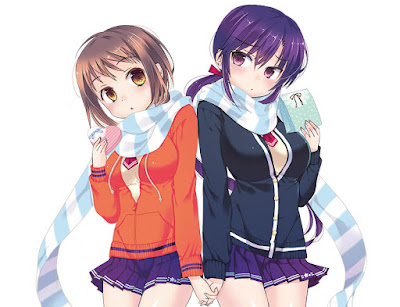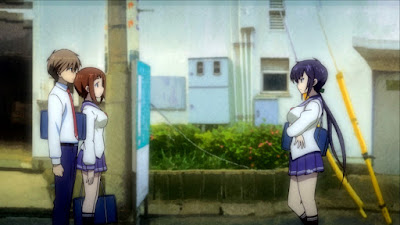Final Fantasy XIII-2 sales disaster
The Video Game Industry is a fickle industry and the popularity of a franchise waxes and wanes from generation to generation. In an industry with a wide variety of IP's sold over the course of a year, only a few franchises consistently sell over the years, Mario, Kirby, Final Fantasy, Warcraft, Diablo, and a few others. Last week, Final Fantasy XIII-2 was released, a sequel to a game that sold 1,516,832 copies in the first week and would eventually sell 1.8 million copies in Japan. The numbers are in for Final Fantasy XIII-2, and they aren't pretty. The game ended up selling 524,217 copies in its first week in Japan. This low number has set up a firestorm of debate on whether Final Fantasy is on its way out as one of the premiere Japanese franchises. I will explore what led to the tepid sales numbers of its sequel and my suggestions on what Square Enix can do to put the Final Fantasy franchise back on track.
Final Fantasy is a storied franchise with a large user base, what went wrong?
- Final Fantasy XIII not living up to expectations: Final Fantasy XIII was released off the heels of one of the most controversial games in the Final Fantasy franchise, Final Fantasy XII. There are some people who praised it as a step in the right direction, while others lambasted it and called it one of the worst games in the franchise. SquareEnix, aware of the criticism, promised that Final Fantasy XIII was a return to form. They teased character art, showcased gorgeous graphics, and hinted at an incredible experience. All the while, the game kept on getting delayed over and over again. SquareEnix didn't want the game to be seen, going as far as to show it in "closed theaters" in trade shows. A lack of exposure along with sky-high promises led to extremely high expectations. It was these expectations that was dashed when Final Fantasy XIII was released. People complained that the game was far too linear and that it didn't have explorable towns. This combination of long delays, unrealistic expectations, and a final product that failed to meet expectations is partly what led to the current sales situation with XIII-2.
- Final Fantasy Brand Fatigue: I have take several brand management classes during my time as a Master's student, it seems that the people managing the Final Fantasy brand didn't take those classes. SquareEnix's handling of Final Fantasy is a classic example of brand fatigue that happens due to overexposure. In the past, every Final Fantasy that was released was an enjoyable and memorable experience to the audience. By limiting releases to quality releases with a regular interval, they have created a positive association with the brand name. Releasing and porting over games to a myriad of platforms and releasing poorly made prequels and sequels to revered games has slowly tarnished the brand. For example, they have released Before Crisis, Crisis Core, and Advent Children to sully the positive image associated with Final Fantasy VII. Instead of making each new release a great new experience, numerous releases have tarnished the brand name and they have lost the customer goodwill and brand equity that have taken so many years to develop. Even before Final Fantasy XIII, sales of each Final Fantasy iteration since Final Fantasy VII is one of decline.
- Management Problems: Peter Drucker said that the heart of many organizational problems is bad management, SquareEnix is no exception. The company has been plagued with organizational problems for a long time, which is why many of the creative people behind many of Square's most storied franchises are not even with the company anymore. Final Fantasy XII was plagued with many management issues, with the director of the project (Yasumi Matsuno) leaving halfway. Final Fantasy XIII is another example of internal management issues because it took them well over 6 years to release Final Fantasy XIII. The game was pushed back numerous times and many of the issues (script, world design, lack of towns, etc.) was because of a lack of communication in the development team. They spent 6 years to develop Final Fantasy XIII and the end result doesn't show 6 years worth of quality development. This could only be the result of bad management who couldn't get the various departments together and come up with a cohesive vision with a hard deadline.
Now that I have addressed the problems behind why the symptom (Final Fantasy XIII-2 sales disaster). I will give my free advice on how I think SquareEnix can turn it around and make Final Fantasy a respected and loved franchise:
- Stop the Cheap Sequels and Spinoffs: Part of why each Final Fantasy is not selling as well as it used to is because of cheap sequels and spinoffs that is creating brand fatigue. Not only that, a cheap sequel and spinoff is also lowering the brand equity of Final Fantasy. Each terrible game with the "Final Fantasy" name associated with it lowers internal perception of the brand name. People associate cheap knock offs and quick money grabs with Final Fantasy now because of what they have done. Limit the Final Fantasy name to high quality mainline numbered games that are released with constant intervals (ex: every 2-3 years)and then they can start rebuilding all the customer goodwill that they lost over the years.
- Have the Developers Replay all the Final Fantasy games: They should have the mainline developers take a break from Final Fantasy development and replay all the mainline titles. When the developers play each game they should write down notes about what works with each game and what fails with each game. After a set time period, they should have a developer meeting and have all the employees give feedback about each iteration they played and what made the game successful and what made the game fail. After playing all the main Final Fantasy games, they should brainstorm using their experiences to create a Final Fantasy XV that fixes their bad experiences from previous games while taking the good parts of Final Fantasy I-XIII and expanding them and implementing them. This simple method is guaranteed to produce an incredible game.
- Reorganize Management Structure of Game Development: From an outsider's perspective one thing is clear, the organization needs to restructure the development teams to be more efficient. They need to restructure the development team to have better internal communication, more transparency with management, and encourage creative freedom among staff. Part of why organization's fail is when there is there is no effective internal communication. This leads to assumptions, disastrous decisions, production delays, and rumor mongering which will lower team morale. Having ineffective internal communication also slows down an organization, it takes 10 days to do something that should only take 2 hours. Transparency with management has traditionally been an issue that many companies have. A manager may have a vision on a product, but it does not trickle down to his staff. The staff may move a different direction that the manager may not want, only to have the manager push them back this reduces team morale and can lead to staff defections. The most important thing is to encourage creative freedom in the development team. Employees love feeling that their work is valued, and promoting creative freedom and implementing/expanding those ideas will create a strong sense of cohesion. When the employees are happy, the quality of the work they do will show in the final product.
- Get Input from SquareEnix Europe: There is an invaluable tool that they own that they could take advantage of, which is SquareEnix Europe (formerly Eidos). Final Fantasy was developed in Japan, and it should stay in Japan. With that said, it would help them if they had SquareEnix Europe give input on screenplay, character design, and gameplay. Nintendo has been very effective in how they use their talent from their Texas-based american team Retro Studios, even having them design tracks for Mario Kart 7. A Final Fantasy game with some input from SE Europe will ultimately create a much better game since many of the people who will play the game will play it in the United States, Australia, and Europe. Even getting input on dungeon design and gameplay will create an even better experience for the gamer in Japan and the West.
Final Fantasy XIII-2 is a sales disaster, there is no way to spin it. It is the worst selling numbered Final Fantasy ever. I pointed out my reasons why I believed that the game sold way below expectations: not living up to expectations, brand fatigue, and management issues. Likewise, I have given my expert opinion on how they can turn it around: stop the cheap sequels and spinoffs, have the developers experience the previous Final Fantasy games, reorganize the management structure of the game company, and get input from SquareEnix Europe. Sales of Final Fantasy XIII-2 is a sales disaster, but with smart management they can turn it around from becoming the status quo. The franchise can still be saved if SquareEnix is able to use the right strategies to turn it around.
 |
| Too bad the rest of Japan wasn't. |






Comments